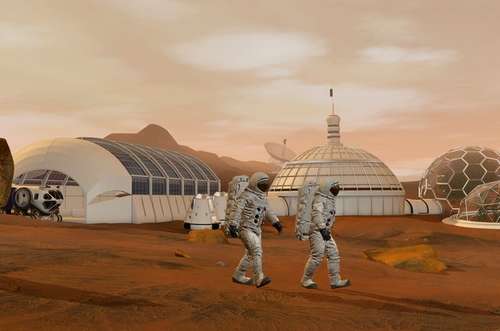
Update on the Critical Stage: The Far Side of Evil's Relevance Today
by Sylvia Engdahl
This essay explains why I feel The Far Side of Evil should not be called outdated, as it sometimes has been, and also presents my recent thoughts about the theory of the Critical Stage that underlies that novel.*
The central idea of my 1971 novel The Far Side of Evil is one that came to me 1956: my theory of the Critical Stage, the time between a planetary civilization’s development of the means to destroy itself and a commitment to expand beyond the single planet where such destruction would wipe it out. The same level of technology that makes one possible also permits the other, and in my view they are mutually exclusive alternatives—a world will remain in the Critical Stage until one or the other happens. This supposition is as valid in my eyes as ever, although my conception of the Critical Stage has changed over time.
It’s frustrating to me that many readers feel that the novel is outdated, and that it therefore seems irrelevant to today’s world. I addressed this in the Afterword to the 2003 revised edition, but some people say the new version, too, is dated, so evidently I failed to revise the original text successfully. That’s too bad, as I feel the book is even more relevant today than at the time of its initial publication.
The political situation in the story was never meant to parallel current events on Earth; it is comparable to our world as it was during the early fifties, not the seventies when the first edition appeared. After all, I wrote an initial draft of portions of it a year before the launch of Sputnik, an event that to my surprise and relief made it impossible for the planet portrayed to be our own. The story is not about politics, although its setting—the conflict between dictatorship and freedom—is universal and applies to all eras. As far as the story is concerned, that conflict is merely a plot device; so the fact that we no longer have two superpowers on the verge of nuclear war in no way dates it. As I said in the Afterword, some readers thought I used space fiction as a vehicle for political commentary when in fact it was the other way around: I used political melodrama to dramatize my ideas about the importance of traveling into space.
When the book was written, I assumed a world’s Critical Stage is short. (Yes, I believe the theory applies to worlds other than ours, just as some scientists now believe that one goal of seeking interstellar radio contact is to find out how long an average planetary civilization lasts before self-destruction.) At the time of the Apollo moon landings, most people thought that nuclear war was likely to occur in the near future, but that if it didn’t, we would continue to make rapid progress in space exploration. Since personally, I had believed since the early fifties that devoting a society’s energy to space travel puts an end to the danger of a catastrophic nuclear war, I described the Critical Stage in those terms. And in fact, some evidence was provided by the space race with the Soviets, which absorbed money and effort that would otherwise have been spent on a more destructive competition.

Paperback cover of the updated edition
As time passed, however, it became clear that my theory was a gross oversimplification. I tried to update it in the 2003 edition, pointing out that there are more dangers to a planetary civilization than nuclear war and that mere development of space travel capability, without a major commitment to establish settlements on other worlds, is not enough to eliminate them. But it’s a novel, not a philosophic treatise, and it was being issued by the publisher’s “children’s book” department (although it’s inappropriate for readers below high school age), so I wasn’t able to elaborate enough to clarify the relevance to today’s world.
Readers say to me that we have space travel yet are still in danger, and that’s true. But we haven’t made use of our space travel capability. Expansion into space prevents a civilization’s destruction by two means: first, by constructively channeling the energy that would otherwise have gone into war, and second, by establishing footholds that can survive even if a species’ home world is devastated—which in principle can happen through a natural event such as an asteroid strike, as well as through various kinds of human action. We have not taken steps toward either one; for nearly half a century, despite the dedicated effort of a small number of astronauts and space advocates, we have done no more than maintain a limited human presence in low orbit. Society as a whole has made no effort at all.
One reader told me he felt that we should spend no more on space travel until every child on Earth is well fed. That dismays me, as I believe the all-too-common idea that we should solve the problems on Earth before moving outward into space is a self-defeating policy. If we wait until we have eradicated poverty to colonize other worlds, neither will ever happen. Expansion into space is the solution—and in my opinion, the only solution—to Earth's problems. Abolishing hunger and pollution and war depends on the use of extraterrestrial resources. The fact that these problems still exist despite well-intentioned efforts to eliminate them is the result of our confinement to a single planet that we have outgrown, and they will inevitably continue to worsen until we make the effort to expand our civilization beyond it.
Most people assume either that we will someday learn to prevent war, or that human nature will eventually lead to interplanetary wars. In my opinion neither of those things will occur. War cannot be abolished by “learning” to prevent it. Negotiation is meaningless because no matter how many leaders negotiate in good faith, there will be fanatics who ignore treaties, and as long as these fanatics can attract enough followers to launch attacks, a strong defense against them is essential; failure to maintain it would lead to worldwide dictatorship. I believe that in time there will be an end to war, but this cannot happen until it becomes impossible for aggressors to recruit a significant number of supporters, a situation that can be brought about only by eliminating the factors that cause people to support them.
Human nature leads to war for two reasons that can't be merely wished away (although the majority attitude toward war certainly becomes more negative as the centuries pass). In the first place, humans crave challenge and excitement, which is the reason our species has been able to survive and thrive; so when a society is not fully occupied with a constructive challenge, it fulfills this need through a destructive one. In the second place, people fight over land and resources when these are scarce or seem likely to become scarce—again, this is an instinct indispensable to survival.

There will be plenty of constructive challenge in colonizing space.
But once we break free of the confines of our native planet, there will be plenty of constructive challenge in the process of surviving elsewhere, and neither living space nor resources will ever be scarce again. The universe contains sufficient resources to last virtually forever—and making use of them needn’t involve stealing them from extraterrestrial races; the discovery of numerous exoplanets indicates that there are more than enough uninhabited worlds to go around.
As long we are bound to a single world with shrinking resources, however, the situation can only get worse. There is nothing surprising in the rise of militant groups and terrorists; how could it be otherwise when it’s obvious that Earth’s resources can’t last indefinitely and some societies either have less than others, or fear that what they do have will be taken away? When the frustration of the have-nots, and their lack of any way of constructively changing their situation, makes them easy prey for fanatics who know all too well how to satisfy their instinctive longing for an exciting challenge? This was always true, but in the past trouble wasn’t widespread enough to threaten the existence of Earth’s civilization as a whole. With modern technology, it becomes increasingly possible for a small minority to endanger the entire planet, even without the use of nuclear weapons (or with them; it no longer takes a superpower to launch a nuclear attack). Yet with that same level of technology we could extend civilization beyond the planet so that even if the worst should happen here, our species will not be wiped out.
This is what the Critical Stage is, and far from being an outdated concept, it becomes more and more pertinent year by year. I see this as a natural stage of evolution. We don't have wars because we are foolish or morally deficient (although there will always be individual evildoers), and we won't have them when our species is mature enough to take up the challenge of interplanetary expansion. I don't believe there will ever be interplanetary war, as many people think is inevitable in view of past history. Conditions will not be the same as in the past. In the terminology of anthropology, war in the past was adaptive for our species—it led step by step to the development of the technology needed to access the resources of a new ecological niche. It will not be adaptive once we are occupying that niche.
Nor will people's attitudes be the same. Centuries ago, war was considered glorious and men felt deprived of opportunity when no war was in progress. Even as recently as World War I, young Americans who joined up were afraid it would be over before they had a chance to get into the fight. Nobody in our culture feels that way today—it's generally agreed that war is a bad thing to be avoided whenever possible. Progress does occur over time. But it takes time—evolution is not a process that can be speeded up by decree, although it can, unfortunately, be stalled by apathy.
For many years I was increasingly worried, not so much by my awareness of more threats as by the fact that nothing was being done to speed up our progress in space and the general public cared less and less about it. I was afraid that our Critical Stage might be unnaturally prolonged. Then, a few years after the republication of The Far Side of Evil, it dawned on me that the public’s decreasing interest in space is due not to apathy, but to fear—not conscious fear, but the stirring of an unconscious recognition that the universe is very much vaster, and more scary, than most people like to think. (See Achieving Human Commitment to Space Colonization: Is Fear the Answer? at this website,) At the time of Columbus, many thought venturesome ships would fall off the edge of the world, a prospect they viewed with great dismay; others (according to legend), knowing the world extended beyond their maps, marked the edges with the warning "Here Be Dragons." Figuratively speaking, most people of our time, having been shown that travel between worlds is no mere fantasy, may feel the same way about space exploration.

The universe is vaster, and more scary, than most people like to think.
And so for a while I thought that the alternative fear of such disasters as biological warfare, environmental deterioration, and terrorism might be the spur needed to get the space program moving again—we wouldn’t have gotten to moon without the fear that the Soviets would win the Cold War. But in 2012, while revising my nonfiction book The Planet-Girded Suns for republication, I suddenly saw the striking parallel between today’s widespread underlying fear of what the universe may hold and the feeling that prevailed in the seventeenth century when the orderly Earth-centered conception of the cosmos was being replaced by realization that the universe has no center and the stars aren’t fixed to a solid crystal sphere. The deep feeling of insecurity this new outlook engendered among the majority of educated people lasted for nearly a hundred years. Is there any reason to assume it will take less time for the public to get used to awareness that humankind is not isolated from whatever exists elsewhere? (See Confronting the Universe in the Twenty-First Century, published as an Afterword to The Planet-Girded Suns and by The Space Review.)
And so I now think that a commitment to large-scale space efforts will not come soon, and that far from being a sign that something has gone wrong, this is a normal phase of evolution that should have been predictable. The Critical Stage simply isn’t as brief as I once believed. That’s an optimistic view, as it means we are still on track. But of course the danger of self-destruction remains, and will last until we do take major steps toward space colonization. There is a longer period of peril than I supposed, and thus greater odds that we won’t survive it.
In the novel the Service is searching for “the key to the Critical Stage” that might enable them to save other worlds, and when readers asked why I didn’t let them find it, I’ve replied it was because I didn’t know the key myself. I now suspect that I do know, and that the only key is time. Thus there is indeed one unreasonable premise underlying the story—the assumption that the Service wasn’t already aware of that, considering that it knew the histories of the many worlds in the Federation it represented. However, I naturally don’t pretend to portray the very advanced interstellar civilization in my fiction realistically, so I trust that this newly-discovered plot hole is not too serious a flaw. Certainly their immediate concern is valid, since if no start were made toward developing space technology, a world’s Critical Stage would end sooner or later in disaster.
Of course there are many individuals in our society who don’t share the prevalent uneasiness about human contact with the universe and are enthusiastic about exploring. There will be small-scale activity in space, including bases on the moon and Mars, long before our Critical Stage is over. We are already beginning to make progress with commercial space ventures, which I have always believed are what are needed to bring about significant development of extraterrestrial resources. But I no longer believe we will see any major effort toward colonization before the end of the twenty-first century.

My Captain of Estel trilogy, of which this is the first volume, contains my speculations about the long-term future of humankind,.
What will happen when our world’s Critical Stage finally ends? By definition, we will have begun to spread into space, and more resources will be available to Earth. But I don't think our world will become the utopia many people hope for until much later; I suspect that for the foreseeable future such a society will be possible only in the colonies. I do believe war will be abandoned, yet there will still be troublemakers and police will be needed to deal with them. There will be hunger and poverty because Earth will be overcrowded for a long time to come, and it won't be possible to import sufficient resources until orbiting colonies—as distinguished from those on other planets—are well established (although implementation of space-based solar power could go a long way toward minimizing these problems). And there will be depression and apathy among the majority of citizens who cannot personally participate in the exploration and settling of the frontier. My novels Defender of the Flame and Herald of the Flame, which are set long after many worlds have been colonized, portray what I think is most likely; they paint a dismal picture of conditions on Earth but offer hope from an unexpected direction at the end of the story.
Today’s space enthusiasts naturally resist the idea of there being a natural explanation for the slowness of our movement beyond Earth, one that time alone can overcome. My published essay about it wasn't warmly received. Perhaps I am able to believe it only because now that I’m past eighty I know colonies can’t be established in my lifetime anyway, nor will I live to see the worsening conditions on Earth likely to prevail before they are. But if my theory about the delay is true, at least we have no present cause to doubt that, barring catastrophe, we will someday reach that pivotal point in our evolution.
Copyright 2017 by Sylvia Engdahl
All rights reserved.
This essay is included in my books From This Green Earth: Essays on Looking Outward and Selected Essays on Enchantress from the Stars and More.